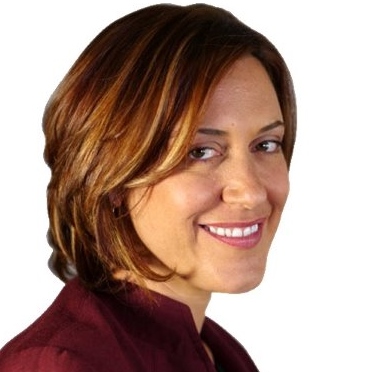
News

Will Israel head to the International Criminal Court?
PAULA SLIER
By the weekend, the chief prosecutor of the International Criminal Court (ICC), Fatou Bensouda, is expected to announce that the court will investigate Israel for possible “war crimes” in the West Bank and Gaza.
Israel isn’t a member of the ICC, but the Palestinian Authority (PA) was allowed to join it in 2015. Jerusalem’s position is that the latter isn’t a sovereign state and as such, it can’t delegate to the court criminal jurisdiction over its territory and nationals. What’s more, it argues that the two sides have already agreed on the matter being resolved through negotiation, and ICC involvement undermines the process.
But already back in December, Bensouda said she had “reasonable basis to believe that war crimes were committed” by both the Israel Defense Forces and Hamas and other “Palestinian armed groups”. Acknowledging that The Hague might not have the jurisdiction to deal with the issue, she asked for a ruling by three ICC judges to determine the scope of the court’s territorial jurisdiction. It is their decision we are awaiting.
As for Bensouda, she believes the ICC possesses legal jurisdiction to operate in the Palestinian territories. According to a Jordanian news site, Jafra, what we are seeing now is a charade, and the decision is a foregone conclusion – not in Israel’s favour. The paper claims Bensouda decided to initiate an investigation a while back, and quotes a PA source who is in contact with the general prosecutor’s office. The source says the request of the prosecutor to the pre-trial chamber was initiated only to protect “the ICC’s public image in a sensitive investigation such as this” but in fact, the court has already decided there is jurisdiction.
Palestine Liberation Organisation Executive Committee Secretary Saeb Erekat has expressed confidence “that a judicial investigation of Israeli senior officials on the issue of the settlements and other war crimes against the Palestinian people will be launched”. Erekat told PA TV that not only had the PA been involved in preparing the case for the ICC, but that internationally designated terror groups, including Hamas and the Popular Front for the Liberation of Palestine (PFLP), also participated.
According to Palestinian Media Watch, an Israel-based nongovernmental organisation and media watchdog, the Jafra news report “suggests that the ICC prosecutor is biased, lacks integrity, and therefore is incapable of conducting a fair proceeding concerning Israel”. The group echoes Erekat’s comments that there have been contacts at the highest level between the ICC and the PA, although the content of the meetings hasn’t been publicised.
The court itself has an abysmal record. It has made few convictions since it was established in 2002, but it has spent more than $1.5 billion (R28 billion).
In 2018, the Washington Post wrote that the ICC had completed nine cases in its history. Two resulted in convictions, and one in a guilty plea. Eleven other cases were still under investigation.
Besides its inefficiencies, the ICC has other major failures. Everyone it has investigated so far has come from an African country. Yet, since the court was established, hundreds of thousands of people from many other locations around the world have been murdered or driven out of their countries as a result of war crimes. The ICC hasn’t concerned itself with any of their cases.
Choosing the Israeli-Palestinian issue over dozens of other cases arguably much more in need of investigation by the ICC is seen (particularly by Israel and her supporters) as a heavily biased political decision. In order to gain relevance, the ICC had to get away from Africa, and Bensouda thought Israel would be a winnable target.
This isn’t the first time Israel has been confronted by international bodies cloaking political agendas behind pseudo-legal procedure. One example was the 2004 International Court of Justice advisory opinion on the Israeli security fence. Another concerned the United Nations Human Rights Council (UNHRC), which gave the Goldstone Commission a biased mandate to investigate actions by Israel but not Hamas.
To date, many organisations and governments have submitted arguments showing that according to international law, there is no “state of Palestine” and therefore the court has no jurisdiction. Australia, Canada, Germany, Hungary, and the Czech Republic are among those who have publicly backed Jerusalem’s position. Israeli Prime Minister Benjamin Netanyahu has called the ICC “anti-Semitic”. Many argue that Israel should confront the court as an enemy, and expose that its multiple deficiencies far exceed its merits.
NGO Monitor, a non-governmental organisation that analyses and reports on the output of the international NGO community from a pro-Israel perspective, has published a report analysing the claims submitted by about fifty NGOs against Israel. It argues that the claims are highly inaccurate from a legal standpoint because they are based on unreliable and biased sources while erasing or inventing historical facts and ignoring Palestinian terrorism.
Anne Herzberg, the legal advisor of NGO Monitor to the Hague, says these organisations have a decisive influence on the ICC, and their activities are sponsored by European governments such as Switzerland, Holland, Sweden, and the European Union.
Palestinian Media Watch said, “If the ICC indeed wishes to protect its image, it should immediately terminate further activity regarding the sham request of the prosecutor. In addition, it should initiate a thorough investigation of the contacts between the prosecutor and the PA committee comprised of Palestinian terror organisations who have undeniably committed crimes, the nature of which the court would deal with if it had jurisdiction.”
Nonetheless, this is, as Israel’s Channel 12 called it, “the most significant legal battle the state of Israel has faced since its founding”. The implications will be far-reaching.




